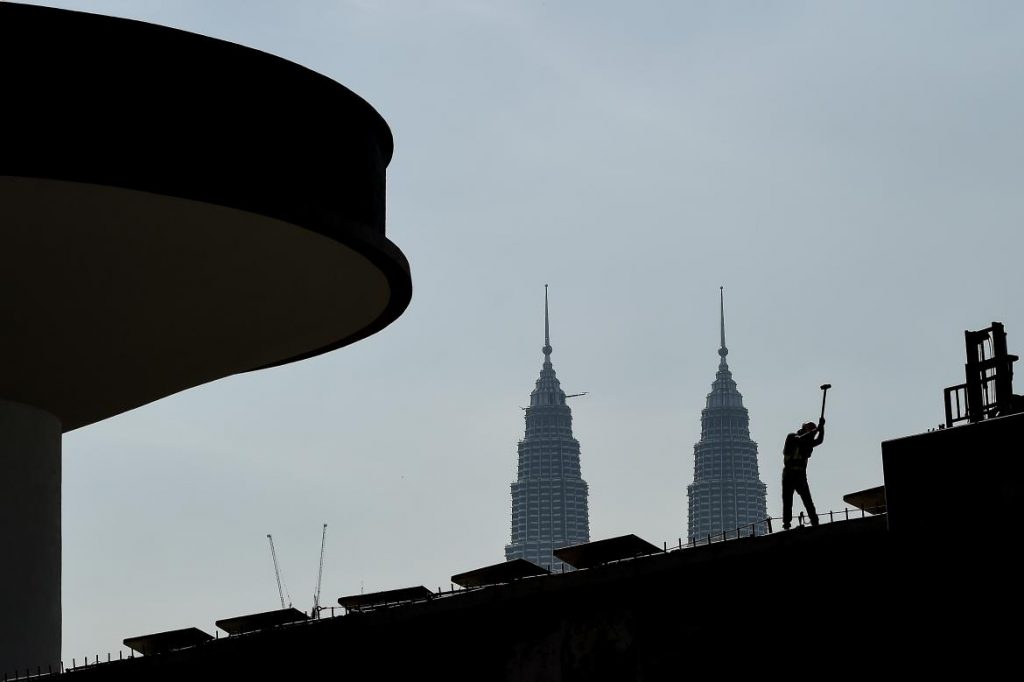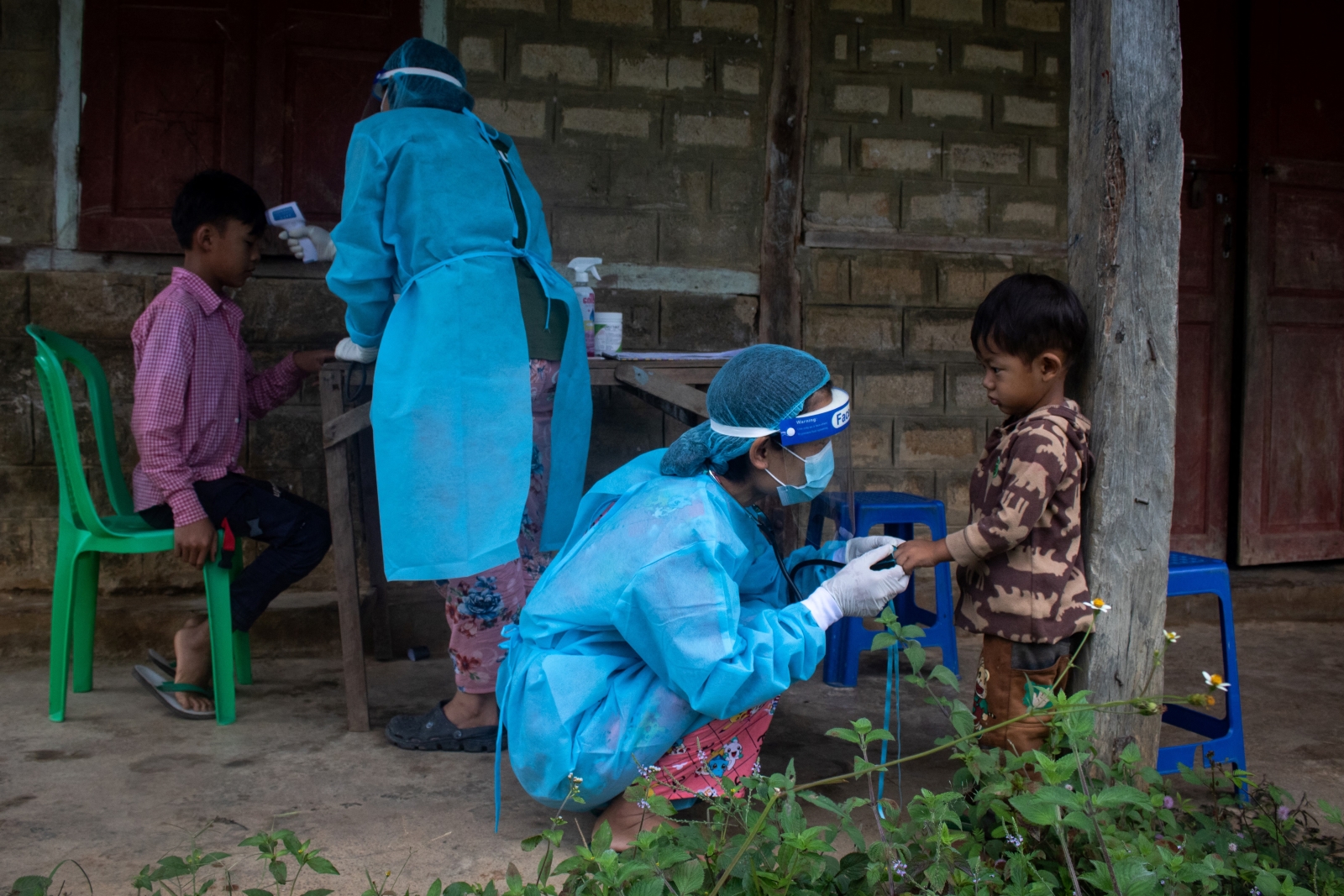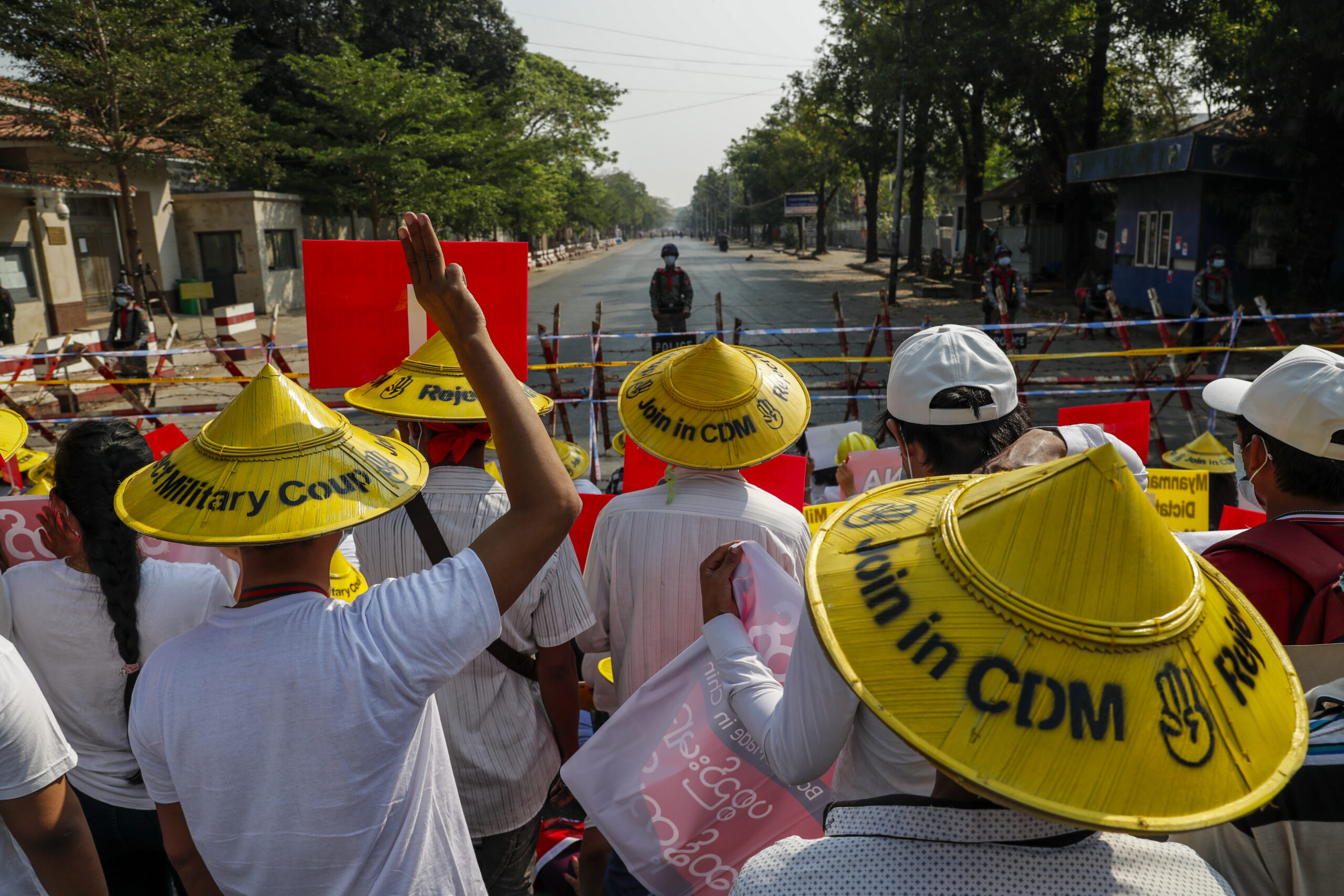Malaysia is encouraging undocumented migrants to hand themselves in on the promise to repatriate rather than detain them, but many Myanmar migrants fear being arrested on their return or forced to serve in the military.
By ANT PWEH AUNG | FRONTIER
Ko Myo Min Tun* scrapes a living as an undocumented manual labourer in Malaysia, ever fearful of being forced back to Myanmar and into the clutches of the military regime.
This is a cruel reversal of fortune for the 34-year-old, who was once a popular and respected primary school headmaster in Bago Region’s Htantabin Township. He left this position to join the Civil Disobedience Movement, a mass strike of public servants in protest against the 2021 military coup. After two years on the run, he paid an agent nearly K6 million (US$1,700 at the market rate) to get him to Kuala Lumpur.
Like several hundred thousand other undocumented Myanmar nationals working in Malaysia, he now risks being caught up in a continued crackdown on illegal migrants and sent back to Myanmar, where he would likely face arrest.
Myo Min Tun is still waiting for the Malaysian work permit that he applied for seven months ago – again, through an agent. He keeps his head down in the meantime, only leaving his room to head to the warehouse where he works. For 60 ringgit ($12.5) a day, he lugs building materials and household items, loading many of them into the company’s trucks for shipment.
“I’m really afraid of being arrested and sent back to Myanmar. The lives of returning CDM staff like me would be in danger,” Myo Min Tun, told Frontier. This is no exaggeration – CDM participants, including teachers, have been murdered by the regime before.
But migrants like Myo Min Tun feel increasingly unwelcome in Malaysia. Particularly since the COVID-19 pandemic, Malaysia has become more hostile to Myanmar migrants and refugees, many of whom are smuggled into the country. Travelling to Malaysia illegally is the only viable option for many dissidents like Myo Min Tun, who face arrest if they try to leave Myanmar at an airport or official land crossing.
Starting on March 1, the Malaysian government introduced a new repatriation programme to encourage illegal migrants to voluntarily surrender themselves to the authorities. The new policy would allow the migrants to be repatriated to their home country without prosecution, but they will need to pay a fine of 300-500 ringgit per immigration offence.
Despite the fine, this would be a tempting offer in normal circumstances, given some undocumented migrants and asylum-seekers have been locked up indefinitely. Migrant rights groups say Malaysia is using a carrot-and-stick approach, having also launched a crackdown in December that has resulted in the arrest of 1,000 illegal migrants so far.
But many are more fearful of returning to Myanmar because of the threat of political persecution, or the dangers of the post-coup civil war. The regime has further incentivised migrants to stay away by introducing a conscription policy to replenish its struggling armed forces, who are facing widespread resistance from an array of armed groups across the country.
The threat of conscription
In February, the military activated the 2010 People’s Military Service Law, which allows men aged 18 to 35 and women aged 18 to 27 to be conscripted into the military for two years. Mandatory service can increase to five years in the case of a national emergency, which the regime declared on the day of the coup and has kept extending.
It’s unclear how exactly the law will be enforced. A regime spokesperson said they couldn’t call up more than 50,000 people per year, with an initial batch in April, and women would be exempted. But a written statement said the military would take 5,000 per month – which adds up to 60,000 per year – and women would serve from September. Meanwhile, even before the February announcement, young men in towns have been abducted at night and pressganged into the military, often without reference to any law.
Ko Khant Htet*, a 33-year-old who’s been in Malaysia since October 2021, said he was considering taking advantage of the repatriation programme. It would have allowed him to spend time with wife, young son and ailing mother, and to return to Malaysia with proper documentation. But the conscription announcement turned him against the idea.
“If I go back to Myanmar, I’ll be forced to serve in the military. If that happens, no one could support my family,” said Khant Htet, who makes bricks for construction sites in Kuala Lumpur for 55 ringgits per day and sends K300,000 home each month. “So I’ve decided to stay here and face any difficulties, no matter what happens, in order to support my family.”
Coming from Maubin Township in Ayeyarwady Region, where the junta has a firm grip, he’d be at particular risk. Forced recruiting was underway in the region as early as 2022, and reports indicate the regime is focusing some of its more recent efforts there.
“We’re worried about Myanmar nationals who still don’t have valid documents,” said U Nyi Nyi Lwin, head of the Center for Arakan Refugees which assists Rakhine people seeking asylum in Malaysia. “If the Malaysian authorities arrest them and send them back, they’ll end up in the Myanmar military.”

So far, few migrants have taken up the repatriation scheme. On March 1, the Malaysian home affairs ministry said of an estimated 600,000 undocumented foreign workers in Malaysia, just 800 had returned home.
“Most of them were unable to work because of bad health and some were afraid of being arrested by Malaysian police,” said U Than Naing, a migrant rights activist living in Malaysia.
This fear is what motivated U Aye Ko*, a 45-year-old construction worker who came to Malaysia illegally in June 2021 and suffers from an enlarged liver.
“If I got arrested for staying here illegally, my health would probably worsen even more in prison, so I decided to go back,” he said.
Than Naing said he believes Malaysia will soon start clearing out its migrant detention centres, and fears for the safety of those deported.
“The next people who will be forced to return to Myanmar are the Myanmar nationals who are imprisoned in Malaysia,” he predicted. “They will have no right to refuse.”
Because of this possibility, 30-year-old Ko Thu Ta* worries constantly about his 23-year-old brother, who was arrested during an immigration raid on the bar where they both worked in Kuala Lumpur.
“My little brother will have to return to Myanmar after serving his three-month sentence here. I’m really worried about him because some returning youths may be sent to military recruitment camps,” he said.
Migrant assistance organisations claim that due to these concerns, the number of new arrivals has outweighed those returning home.
Document difficulties
Three migrant assistance groups interviewed by Frontier estimated that about 300,000 of the nearly 800,000 Myanmar migrant workers in Malaysia are undocumented. These organisations urge new arrivals to keep a low profile amid the crackdown, for instance by not wearing traditional items of clothing like the longyi or applying thanaka paste to their faces, which would clearly identify them as Myanmar.
“Many Myanmar nationals who arrived in Malaysia after the military coup lack work permits, and very few have UNHCR identity cards,” Nyi Nyi Lwin said.
The UN refugee agency said as of mid-January, over 160,000 Myanmar were registered with the agency in Malaysia, including over 100,000 Rohingya and 25,000 Chin. Malaysia is not a signatory to the 1951 Refugee Convention, and many who register with UNHCR never get resettled to a third country. But nonetheless, registration does provide some protection from arrest.
But even many documented migrants risk becoming illegal because of a huge bottleneck in passport renewals at the Myanmar embassy in Kuala Lumpur.
Nyi Nyi Lwin said more than 150,000 Myanmar nationals are waiting for new passports but the embassy can only issue 20-30 per day, leaving people in limbo for up to 18 months. Migrant groups in Malaysia said before the coup, passport renewals took about a week, but since then demand has surged while junta-run consular services have deteriorated.
Ko Aung Thura*, who works legally at a restaurant in Kuala Lumpur, paid 2,500 ringgit to a broker to get his passport renewed in three months.
“It was important to get the new passport in time so that I could also extend my work permit. That’s why I spent a lot of money on the process,” he said. But while everything worked out for him, Aung Thura warned that there are also scammers posing as brokers, waiting to take advantage of desperate migrants.
Making matters worse, Myanmar nationals in Malaysia told Frontier that the embassy does not issue passports to politically sensitive individuals. This can include CDM participants or even people from townships where armed resistance groups are strong. The Myanmar embassy did not respond to requests for comment.
Myo Min Tun, the former headmaster, is still lying low. He clings to the hope that he will eventually receive his work permit, while worrying for his compatriots languishing in immigration detention. He knows that with a stroke of bad luck, he could join them and face deportation.
“The military urgently needs manpower these days. If Myanmar nationals are returned by Malaysia and fall into their hands, they won’t be able to do anything about it.”
*denotes the use of pseudonym for safety reasons







